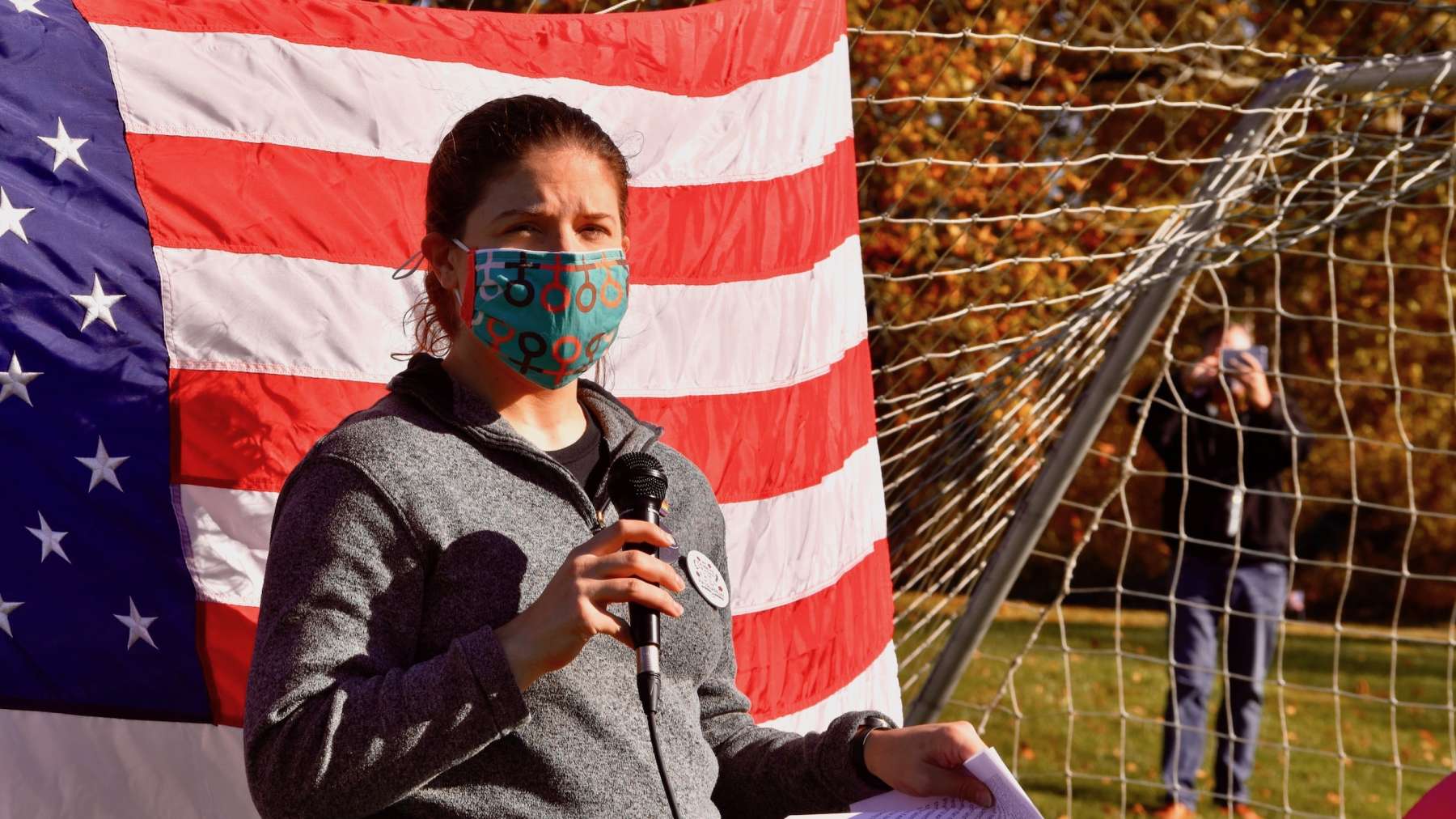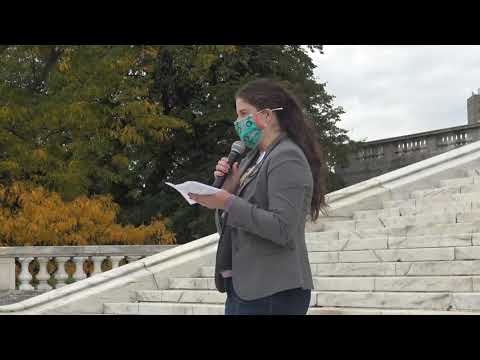OpEd: Bending the Arc of History takes effort
“Women began organizing for the right to vote in 1848, and the first nationally publicized gathering was in Worcester, Massachusetts in 1850. You’ll be happy to know that the proceedings of the National Women’s Rights Convention were presided over by a Rhode Islander…”
November 10, 2020, 10:12 am
By Jenna Magnuski
I’m a historian, and so I can’t not immediately look at the history behind anything that we do in our everyday lives.
A quotation I’ve been hearing even more than usual over the past few weeks is by the Reverend Doctor Martin Luther King Jr It often comes up as we discuss the fatigue we’ve felt advocating for change. He said, actually quoting another theologian, that “the arc of the moral universe is long, but it bends toward justice.” Usually people say this to mean that things will work out in the end. Studying history has taught me that it takes more than time. It takes lots of good people hanging on that arc, and pulling it toward justice.
A great example of this is the fight for women’s suffrage. Women began organizing for the right to vote in 1848, and the first nationally publicized gathering was in Worcester, Massachusetts in 1850. You’ll be happy to know that the proceedings of the National Women’s Rights Convention were presided over by a Rhode Islander. A resident of Providence, no less. Her name was Paulina Wright Davis. She frequently partnered with a Quaker woman, Elizabeth Buffum Chace, as they advocated for women’s rights.
A woman from East Greenwich was recognized as the first in the nation to publish a newspaper on women’s rights. In 1852, Anna Waity Spencer wrote in the first edition of The Pioneer and Women’s Advocate, “The wrongs will continue until women demand their redress. Who better than herself can press that demand?” So that’s the 1852 version of “go be a nasty woman.” Women activists didn’t immediately do that though – many were involved in abolition, and then the war effort as the Civil War raged. But while they did those things, though, they were honing their skills to organize.
Even after the Civil War, the movement was not unified. Across the United States, including in Rhode Island, African-American women were generally not welcome in the clubs and organizations of white women. They made their own clubs and organizations, and had their own successes in the advancement of women’s suffrage. The major organizations of white women repeatedly fractured and reformed themselves in various ways over the decades. From 1870 to 1890, there was a major break over whether they should support the 15th amendment ending the denial of men’s right to vote due to race, color, or previous condition of servitude. Some saw it as a stepping stone to women’s suffrage, and others opposed it because it didn’t address women’s suffrage, which some thought should come first or at least at the same time. These organizations also fought over methods, with more militant, radical suffragists opposing the mild-mannered and ordered suffragists. And they fought over where to advocate – by state, or nationally. For anybody that’s involved in any kind of advocacy, you know that’s the same as today.
As the women fought this fight, sometimes together and sometimes in small groups, nothing about it seemed predestined to succeed. They kept trying anyway. The Rhode Island Women’s Suffrage Association, for example, requested a statewide referendum on the right to vote every year beginning in 1868. Seventeen years later, in 1885, it finally went to a vote but it failed. In 1886, it passed the legislature but then the referendum was voted down by 75% of voters.
Finally, in 1917, Rhode Island passed a law allowing women to vote in presidential elections, also after many attempts. However, they didn’t get to exercise that vote until the next presidential election in 1920 – after the passage of the 19th amendment, ending the denial of the right to vote based on sex. That too, barely came to pass. The final state to ratify, Tennessee, did so just under the timer and by one vote – a man who switched sides to vote for ratification after he got a letter from his mama telling him to.
So people often say the battle for women’s right to vote took 72 years – from the first convention in 1848 to 1920. But even then, the wording of the 19th amendment mattered. It didn’t grant the right to vote – it said it couldn’t be denied only because of sex. It could still be denied for other reasons. Indigenous Americans weren’t able to vote until 1924 because they weren’t considered citizens. Black Americans could hypothetically vote, but were effectively barred by poll taxes, literacy tests, grandfather clauses, and violence. Asian Americans weren’t able to vote until 1943, when they were eligible to become citizens. And all of this was hypothetically resolved in 1965 with the Voting Rights Act. So, women’s right to vote wasn’t a 72 year battle from 1848 to 1920 – if you counted it as accomplished in 1965, it would be 117 years. But watching the news in the last 4 years, with voter ID laws that systematically take the right to vote from Indigenous people who don’t have a legal addresses if they live on reservations, through fights against DREAMers, to restrictive voting hours and limited polling places that make it hard to vote if you don’t have the ability to travel and the time to wait. There are still too many barriers.
It’s been 172 years, and we’re still fighting. Don’t let those 172 years have been in vain. Vote. Let all of us hang on that arc, and bend it towards justice.







